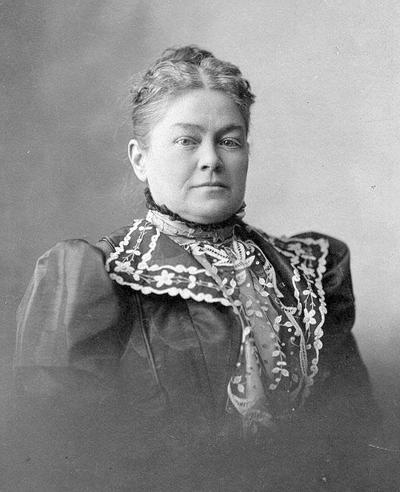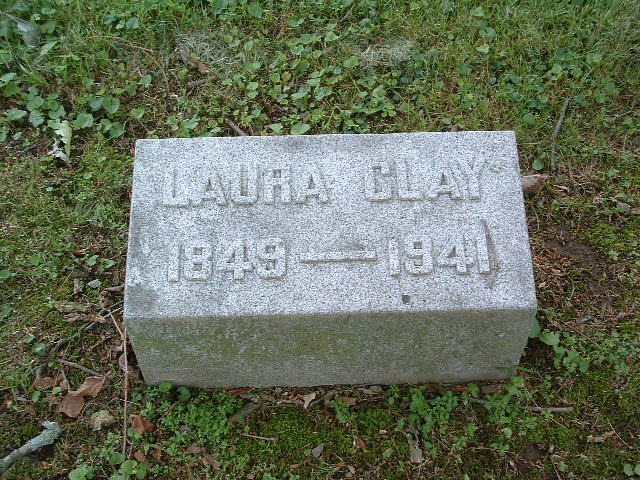Laura Clay (Laura Clay)

A daughter of Cassius Marcellus Clay and his wife Mary Jane Warfield, Clay was born at their estate, White Hall, near Richmond, Kentucky. The youngest of four daughters, Laura was raised largely by her mother, due to her father’s long absences as he pursued his political career and activities as an abolitionist. Clay was educated at Sayre School in Lexington, Kentucky, Mrs. Sarah Hoffman’s Finishing School in New York City, the University of Michigan, and the University of Kentucky. Clay’s parents divorced in 1878, leaving Mary Jane Clay homeless after she had managed Whitehall for 45 years. This inequality galvanized Clay’s older sisters, Mary, Annie, and Sallie into joining the women’s rights movement, and Laura followed.
In 1888 Clay and Josephine K. Henry founded the Kentucky Equal Rights Association, of which Clay served as president until 1912. She was succeeded by her cousin Madeline McDowell Breckinridge. The organization lobbied successfully for a range of legislative reforms, such as protecting married women’s wages and property, requiring state women’s mental hospitals to have female doctors on staff, inducing Transylvania University and Central University to admit women students, raising the age of marriage consent for girls to 16 from 12, and establishing juvenile courts. They also inspired the University of Kentucky to build its first dormitory for women.
During the 1890s, Clay became active in the National American Woman Suffrage Association and became a colleague of Carrie Chapman Catt, Alice Stone Blackwell, Catherine Waugh McCulloch, Alice Lloyd, and other national leaders of the women’s rights movement. She traveled nationally speaking on behalf of women’s suffrage and established suffrage societies in nine states. A devout Episcopalian, Clay also worked for decades to open lay leadership of the Episcopal Church to women.
Clay joined the Woman’s Peace Party (a forerunner of the Women’s International League for Peace and Freedom), which had been founded in 1915 by Carrie Chapman Catt, Jane Addams, and others. Clay served as the party’s chairman in Kentucky’s Seventh Congressional District. She left the party when the United States entered World War I and actively supported the war effort.
Clay also was an advocate of states’ rights. After Kate M. Gordon organized the Southern States Woman Suffrage Conference to lobby state legislatures for laws to enfranchise only white women, Clay advocated rejection of a federal solution for women’s voting rights. In 1916 she was elected vice-president-at-large of the Southern States Woman Suffrage Association, which opposed obtaining suffrage through an amendment to the U.S. Constitution. Clay opposed passage of the Nineteenth Amendment as she believed that it violated states’ rights.
In 1920 Clay was a founder of the Democratic Women’s Club of Kentucky. That same year, at the 1920 Democratic National Convention, Laura Clay made American history as the first woman to be nominated for President by a major political party. In 1928 she actively supported the presidential candidacy of Al Smith and opposed Prohibition. In 1933, she served as Temporary Chairman of the Kentucky Convention to ratify the Twenty-First Amendment. Clay slipped from the public life in her last decade. After her death in 1941, she was interred at Lexington Cemetery.
Born
- February, 09, 1849
- USA
- Whitehall, Kentucky
Died
- June, 29, 1941
- USA
- Kentucky
Cemetery
- Lexington Cemetery
- Lexington, Kentucky
- USA


